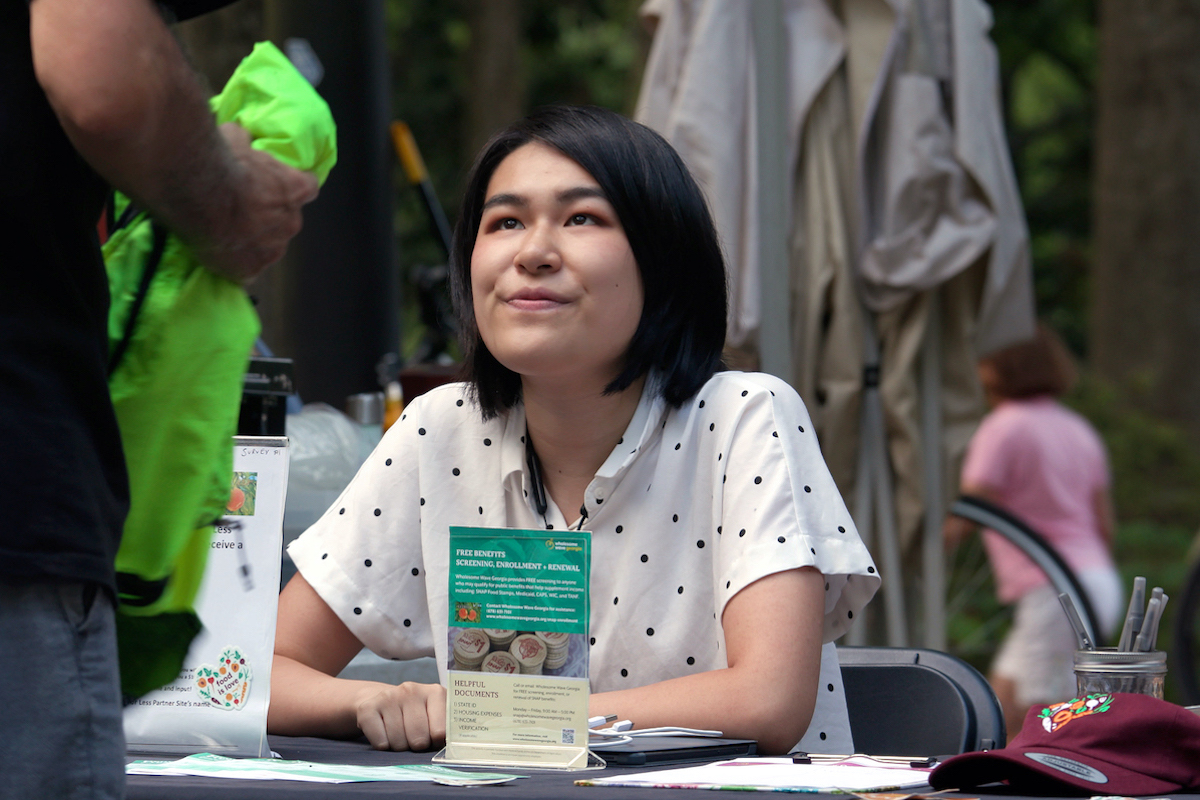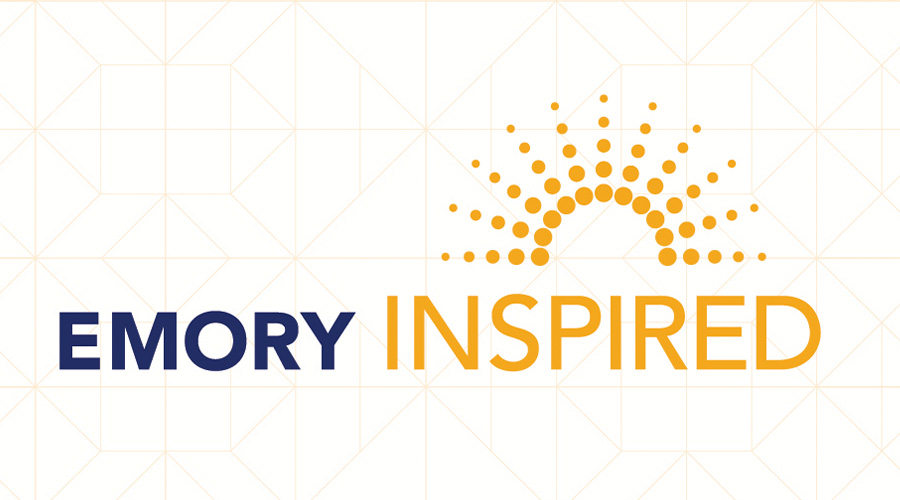In a summer notable for rising consumer prices, the nonprofit Wholesome Wave of Georgia is a more welcome presence than ever at area farmers markets.
Through its program Georgia Fresh for Less, Wholesome Wave enables those using SNAP/EBT dollars to have their dollars matched up to $50 when they purchase fresh, local fruits and vegetables. Georgia Fresh for Less not only helps families in need eat healthier; it also supports local farmers and contributes to the state’s food economy — more than $3.86 million since 2009.
Jessie Zhao, a second-year MPH student at Emory’s Rollins School of Public Health, is helping carry out this program as well as Georgia SNAP Connection, which enrolls individuals seeking food stamps and other benefits. And she is administering a survey designed to improve Wholesome Wave’s services.
Jessie Zhao, a second-year MPH student at Emory’s Rollins School of Public Health, interned with Wholesome Wave of Georgia through the Servant Leadership Summer program.
Interested in food access since her days as an undergraduate, Zhao is interning in the D. Abbott Turner Program in Ethics and Servant Leadership (EASL), which is directed by Edward Queen of Emory’s Center for Ethics. Perfecting his matchmaking skills over two decades, Queen has paired area partners — nonprofits, government agencies and socially responsible businesses — with students he and his colleagues have tutored in service, community building and leadership development.
“I have definitely learned a lot about how government benefits and grants are managed, both by organizations and individuals applying for them or looking to have their benefits renewed. That's been eye-opening, and I can see these lessons helping me in my education and career,” says Zhao.
A proving ground for servant leadership
For Zhao and her fellow interns in the Servant Leadership Summer program, the answer to the question “what I did on my summer vacation” is pretty impressive: they joined the next generation of ethically engaged community leaders — a pipeline that Queen has been extending for the better part of two decades.
EASL works by application, is open to all Emory students and asks them to consider: What would it mean for me to be responsible for an organization? What kinds of decisions would I make?
This year, students had a choice of 17 community partners whose service touches on education, food access, law, health, homelessness, environment, the arts and refugee resettlement. There is even an option to design an internship. The program includes an orientation, weekly class sessions, projects and 270 hours of work at the placement site. Students receive a stipend of between $2,000 and $4,000. In Zhao’s case, the work for Wholesome Wave also satisfies her Rollins practicum requirement.
Wholesome Wave’s Georgia Fresh for Less program matches SNAP/EBT benefits dollar-for-dollar at participating farmers markets, helping expand access to fresh fruits and vegetables. 
The range of organizations is deliberate, on two counts. As Queen notes, “It gives students a wider set of opportunities from which to choose. That way, we can meet students where they are. And, second, it’s really about the needs in the Atlanta metro area, which are broad and significant.”
It didn’t take Zhao long to get a feel for the clientele Wholesome Wave serves. As she explains, “We have definitely have a lot of customers who are not familiar with technology or don’t have access to it at home, so we are really doing our best to make the online survey as painless as possible. And just through assisting people with SNAP benefits, I’ve learned more about the kinds of struggles that people are going through trying to make ends meet.”
A match made in . . .
Zhao and Queen first met when he came to lecture at a course she was taking on the social determinants of health. Zhao did not know much about servant leadership then but now believes that what Queen teaches leads to “better outcomes at area nonprofits, both for the organizations and the people they serve.”
For some students, an EASL internship is a chance to try out an area in which they have interest. In other cases, particularly with graduate students, they can go deeper in a realm where they already have done some work. For all students, “it is about the challenge of doing work ethically,” Queen says. “Many students haven’t had to think about the complexities of negotiating competing and resource limitations.”
Programs like this elsewhere sometimes focus only on carrying out the university’s purposes or those of students. In EASL, the community partner is the third leg of the stool. Some partners have been associated with the program for years because, says Queen, “we send high-quality, committed people who produce valuable work for the organization and are able to articulate its goals in ways that are compelling.”
As a result of “tremendous need in the community,” Queen wants to continue to grow the program. “My wildest dream is to set this up as a settlement-house model in some area of Atlanta where students both live and work together during the entire summer,” he says.

Emory Inspired is about people out in the community sharing their passion, and just plain good ideas, for improving the home we share in Atlanta.
Somehow our paths crossed, and we are better for the partnership. Maybe you started a business providing meaningful work to others in the region. Or you are helping underrepresented local high school students see themselves in health careers. Or you are helping diversify county arts programs to better match the communities they serve.
Government, education, health care, business, the economy, arts, climate. Emory’s community partners touch all of it.
We have learned from you. And this series is inspired by you.
